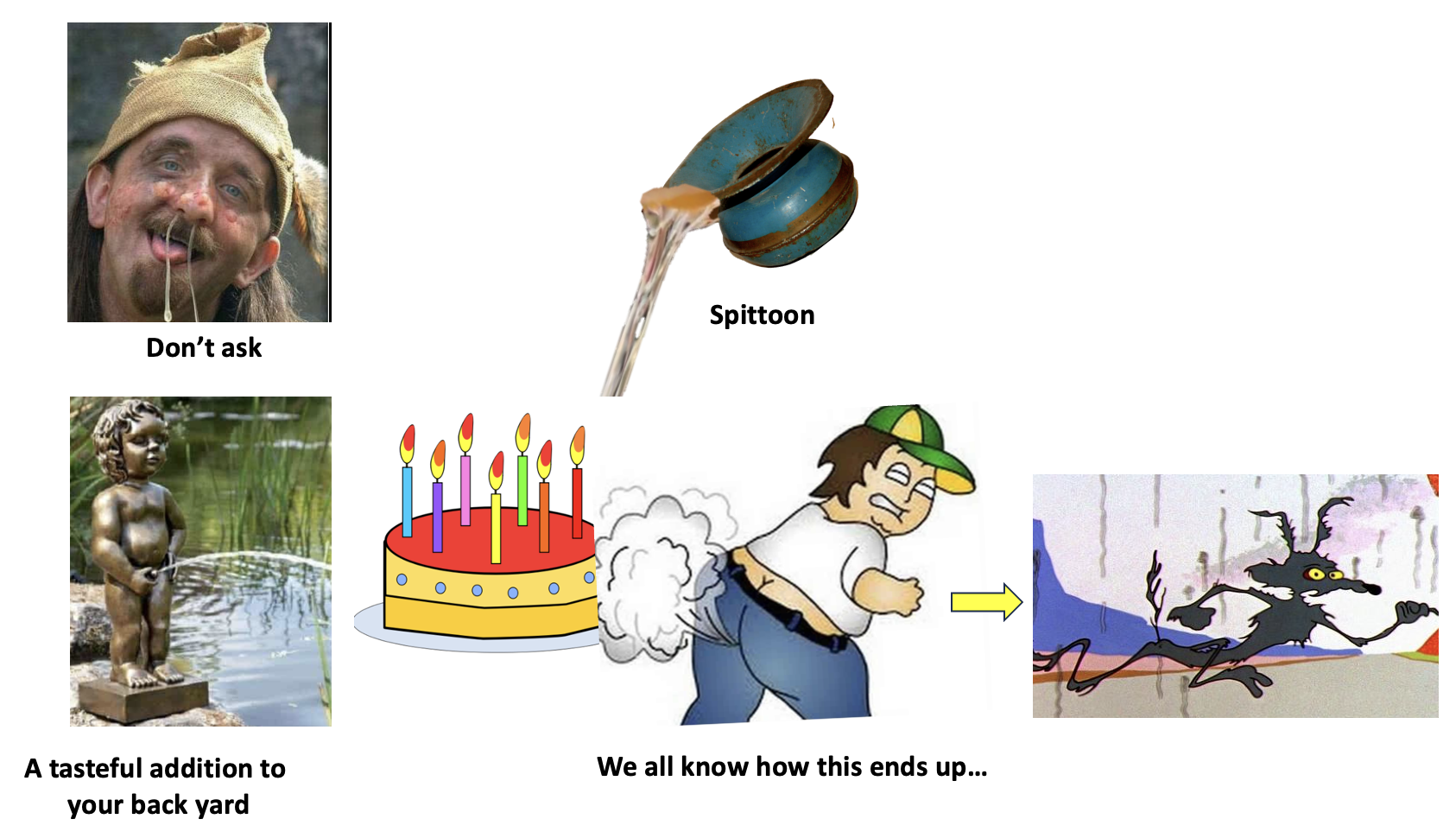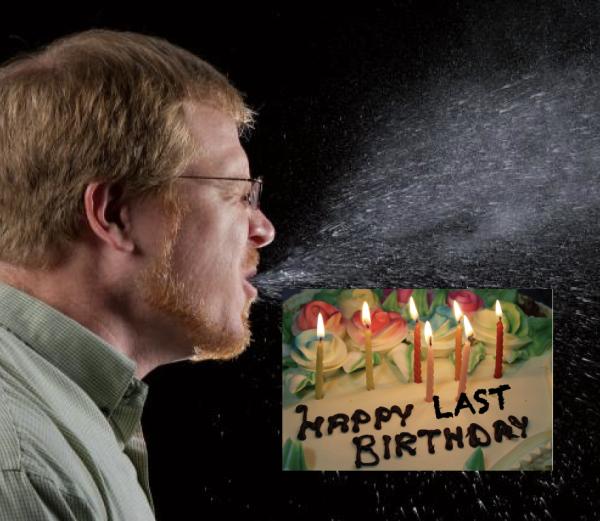A recent video from CNN raises what seems to be a silly topic. Should we still be blowing out candles on birthday cakes? There are numerous opinions from all over the internet about this foul practice. Most agree that whatever bacteria can be spread by your average candle blower are unlikely to make anyone sick. But I think they're all missing the point. Here's why.
Paul Dawson, a professor of food safety at Clemson University, and his team conducted a study that found that water droplets in a puff of slobber breath sufficient to blow out candles contained about 1,000 bacteria, about 15 times more than that found on cakes that had not similarly been spewed upon. What does this mean in terms of an actual threat to our health?
While Dawson quips "My advice would be if someone's blowing the candles out, especially if they are sloppy doing it, when I get a slice I would scrape the top layer off," he also notes, "Probably there is very little danger in eating birthday cake that has been blown on because we are with other people all the time," and, as he told The Atlantic in 2017, “In reality, if you did this 100,000 times, then the chance of getting sick would probably be very minimal. The exception is when the person doing the slobbering is sick or immune compromised or elderly people are on the receiving end.
So what?
Note that the pathogen measured is bacteria. Why mention this? Because bacteria are really easy to measure. Just collect a little schmootz from the icing and smear it on an agar plate. All kinds of hideosities will grow. But does this reflect whether said hideosities will make the slobber cake eaters sick? I argue no because the infectious pathogens that go around every year and make us sick are (by far) mostly viruses. And viruses are not at all easy to measure on a cake (1). Here are some of the most common infections that can be spread by saliva:
Viruses
- Rhinovirus (colds) - about 1 billion cases/year in the US
- Flu virus (influenza) - 9-40 million cases/year
- Norovirus ("stomach flu") - more than 20 million cases/year
- Respiratory syncytial virus (RSV) - 5-8% of all respiratory infections. Easily spread.
- Oral herpes (cold sores) - Widespread, transmission unlikely (but not impossible) from blowing out candles
- Epstein-Barr Virus (mono) - about 100,000 cases/year
And let's not forget...
- Covid-19 (2) - About 100 million since 2020 (US). And, according to the NIH Covid can infect mouth cells and live quite happily in saliva.
Helloooooo?
One would think that Covid alone would stop people from sharing drinks, eating off other people's plates (I keep a bayonet handy in case I see a fork heading my way), and blowing out f###### candles – a thoroughly antiquated and useless tradition that originated in ancient Greece or 19th century Switzerland. As if that matters.
Airborne bacterial infections don't even come close to these numbers, which is why measuring them is pretty much as valid as counting lima beans in your gym socks.
Bottom line
Measuring bacteria on a snot ball cake may be good for publicity – you can't even imagine how many times the Dawson study has been cited – but this has little to do with health consequences, if any, for continuing this grotesque custom. Remember: Pandemic. It's not over.
Some (admittedly flawed) and tasteless solutions. Have a strong stomach.
Let's just dive right in. You ought to know by now that I'm going to be offering stupid and tasteless (hopefully both) "solutions" to the birthday cake conundrum. Why waste time? Here they are.

Alternative, perhaps superior, methods for extinguishing birthday candles. (Left, top) I don't know what's going on with this guy but hopefully, he's not a sous chef at Le Bernardin. (Right, top) Spittoons, a dainty invention if ever there were one, are sadly out of style. (Left, bottom) This fine sculpture, a tasteful addition to any yard, might be overkill. (Right, bottom) Ralph, who finished in the top 99% of his high school class, thinks that the passing of flatus will extinguish the candles. He will shortly learn otherwise. Image credits: Facebook, Wikimedia, Freesvg, Pnegg, Pinterest
So, to mangle an old aphorism, you can have my cake and eat it too.
NOTE:
(1) Some viruses are notoriously difficult to grow, even in cultured cells. So while a virus won't grow on a cake or in a Petri dish it can easily do so within your body.




